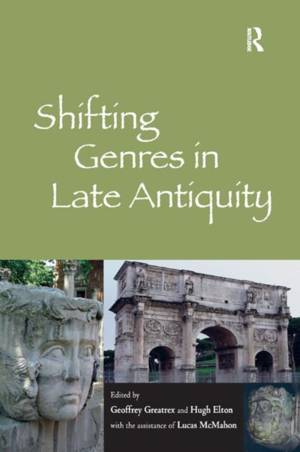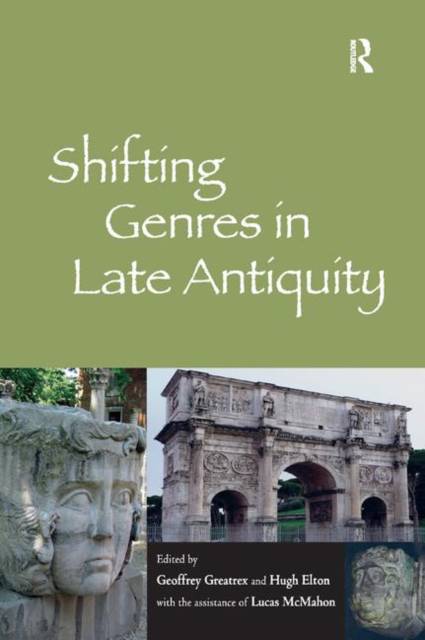
- Retrait gratuit dans votre magasin Club
- 7.000.000 titres dans notre catalogue
- Payer en toute sécurité
- Toujours un magasin près de chez vous
- Retrait gratuit dans votre magasin Club
- 7.000.0000 titres dans notre catalogue
- Payer en toute sécurité
- Toujours un magasin près de chez vous
Shifting Genres in Late Antiquity
Geoffrey Greatrex, Hugh Elton, The Assistance of Lucas McMahon
Livre broché | Anglais
86,95 €
+ 173 points
Format
Description
This volume examines the transformation that took place in a wide range of genres in Late Antiquity. Aspects of sacred and secular literature are discussed, alongside chapters on technical writing, monody, epigraphy, epistolography and visual representation. What emerges is the flexibility of genres in the period: late antique authors were not slav
Spécifications
Parties prenantes
- Auteur(s) :
- Editeur:
Contenu
- Nombre de pages :
- 358
- Langue:
- Anglais
Caractéristiques
- EAN:
- 9780367879778
- Date de parution :
- 12-12-19
- Format:
- Livre broché
- Format numérique:
- Trade paperback (VS)
- Dimensions :
- 156 mm x 234 mm
- Poids :
- 503 g

Les avis
Nous publions uniquement les avis qui respectent les conditions requises. Consultez nos conditions pour les avis.






